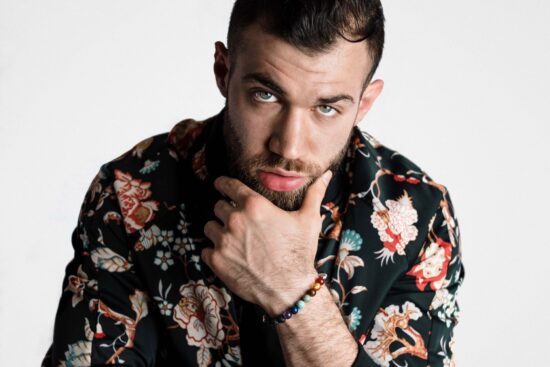
What Anthony Bourdain’s Life Teaches Us About Money and Passion
Most people don’t expect a rockstar chef turned travel documentarian to become a financial role model. And yet, here we are—Anthony Bourdain’s name still pops up when folks talk about authenticity, global storytelling, and yes, even personal finance.
When Bourdain passed in 2018, people weren’t just asking what happened—they were trying to understand how a guy who once lived on the edge became a respected world voice and a financially secure figure. Depending on who you ask, Bourdain’s net worth ranged anywhere between $1.21 million and $8 million, according to sources like Forbes and Celebrity Net Worth. That swing? Yeah, it’s a sign of something deeper—how unpredictable creative careers can really be.
This wasn’t about financial flash, either. The guy didn’t play status games. His choices were deliberate: no debt, conservative bets, and a clear priority—provide for his daughter and make sure her life was covered, no matter what. Plain and simple.
So why does this matter to us?
Because it shows that money isn’t the endgame. It’s a tool. And when you explore how Bourdain used his, you realize he built more than a bank balance—he built a legacy woven from curiosity, intention, and grit.
Understanding The Range Of Bourdain’s Net Worth
Let’s clear the air on the numbers.
At the time of his death in 2018, estimates for Anthony Bourdain’s net worth ran a wide gamut—on one end, $1.21 million; on the other, up to $8 million. Why the inconsistency?
Because not all wealth is liquid, and not all value is visible on a spreadsheet.
His assets included:
- A New York City apartment that represented real estate stability in a turbulent market.
- Royalty streams from best-selling books that kept his words alive and profitable.
- Intellectual property tied to his shows, stretching across networks and borders.
Debt? Not his thing.
Bourdain remained cautious. He didn’t dive into over-leveraged deals or flashy investments. He approached finance like someone who had seen life fall apart and built it back from the kitchen floor.
He once told Men’s Journal that the core goal of his investment philosophy was protection—not expansion. Not ego. Just making sure his daughter and her mom had what they needed if the worst ever happened. That’s not a quote from an accountant. That’s straight clarity from a man who understood risk and chose focus instead.
This wasn’t a guy who rode hype. It’s more accurate to call it a slow, steady pivot—from paycheck-to-paycheck cook to global storyteller with deliberate financial anchors.
Why People Are Drawn To His Financial Journey
Celebrity finance grabs attention.
Mostly because we think fame equals fortune. But when it doesn’t? That’s when people start asking real questions.
Bourdain didn’t fit the typical celebrity wealth narrative. He wasn’t flashing cars or launching $500 tequila brands. His influence—massive. His wealth—slower, subtler, deeper. And that contrast pulls people in.
There’s something wildly compelling about someone who made millions—but knew exactly what mattered.
People Google “Anthony Bourdain net worth” not just out of curiosity. They want to understand how someone could travel nonstop, reshape media, own stages across continents, and still hold onto a grounded, almost minimalist relationship with money.
Here’s the thing—his legacy wasn’t built on branding. It was built by showing up in places others ignored and telling stories they didn’t have the time to see. That’s where the cultural capital came from.
And over time, that influence led to real-world earnings. But his net worth? That’s just a fraction of what he really left behind.
| Asset Type | Description | Estimated Impact on Net Worth |
|---|---|---|
| Real Estate | New York City apartment | High-value urban property & equity asset |
| Royalties | Books and television rights | Ongoing long-tail income source |
| Investments | Equity in Roads & Kingdoms, savings | Modest risk, high cultural value |
His path turns heads because it’s not about status. It’s about clarity. Control. Contribution.
So yeah, Anthony Bourdain made money. But what makes him memorable is how damn well he understood what that money could actually do.
The Travel Industry and Financial Impact
Before Anthony Bourdain burst into our screens with his gritty charm and global palate, travel TV was mostly about five-star resorts and turquoise beaches. But Bourdain flipped that script. What if travel wasn’t about luxury, but about people, food carts, and back alley bars in cities you’ve never heard of? That question reshaped how audiences—and the travel economy—viewed the world.
Through shows like No Reservations and Parts Unknown, he helped launch what industry insiders now call “The Bourdain Effect.” Small businesses from Medellin to Manila suddenly saw tides of new customers. A bowl of noodles spotlighted on CNN could do more for a vendor’s sales than any ad campaign. Hotel bookings in cities featured on Bourdain’s shows saw noticeable spikes, with tourism boards quietly grateful for his brand of raw, honest storytelling.
In essence, at the heart of Anthony Bourdain’s net worth was a subtle economic machine. His exploration-forward format pushed tourism toward lesser-known locales—Albania, Uruguay, Congo—stimulating cash flows where few travel shows dared to go. The impact hit local restaurants, cultural hubs, and even artisan producers who were often featured in his episodes.
While other celebrity travelers flaunted luxury villas and private jets, Bourdain sold something else: experience. Viewers weren’t just escaping—they were learning. That pivot toward experiential travel found resonance far beyond his shows. Influencers, content creators, and travel brands copied the blueprint, giving birth to an industry now worth billions. Experiential travel is big business, and you can argue Bourdain was one of the first to show how it could be done right—authentic and marketable.
- He leaned into digital early with Roads & Kingdoms, a media outlet focused on immersive storytelling.
- He co-produced “Explore Parts Unknown,” a spinoff that won an Emmy—delivered exclusively online.
- Bourdain’s decision to prioritize story over style resonated with tech-native audiences and ensured longevity through streaming giants like Netflix and Pluto TV.
Streaming services kept his voice alive. Old episodes still rank high in search, and new fans continue to discover him online. His work lives on not just in reruns, but in the cascading economic ripple effects that continue to touch cities across the globe.
Entertainment Innovation and Its Role in Net Worth
Anthony Bourdain’s net worth wasn’t built on flashy restaurants or high-end chains. It came from something far less predictable—an unmatched ability to merge culture, cuisine, and deep social commentary into high-value entertainment.
His Emmy-studded shows didn’t just draw viewers in; they redefined what food television could be. Awards and acclaim elevated his visibility, allowed him to command stronger contracts, and opened avenues for side income. Publishing became another solid pillar—in the form of cookbooks, memoirs, and thought-pieces that topped bestseller lists and added to his media empire.
What made his approach unique? He didn’t pigeonhole content into a food genre or use it as a backdrop for celebrity chef showdowns. Instead, he told human stories. In one episode, viewers could learn about Palestinian refugee camps. In another, they explored underground dinners in Berlin. That genre-blending edge—part travelogue, part socio-political deep dive—created demand for content with substance over sizzle.
This fusion model soon caught on. Media companies took notice, and other entertainers followed. Think David Chang. Think Guy Fieri. Both struck gold blending personal storytelling with culinary adventure. But Bourdain set that standard. His risk-taking pushed the boundaries of food TV, allowing it to move seamlessly into mainstream entertainment, which diversified income streams and made financial sense.
Content wasn’t just something he made. It was something he invested in. By backing Roads & Kingdoms, he poured personal capital into digital-first media just as traditional outlets began faltering. That strategic move wasn’t just artistic—it was savvy. It allowed him to shape narratives, control IP, and reach younger demographics well before media giants started pivoting to mobile-first formats.
So while Anthony Bourdain’s net worth might surprise those expecting eight-figure fortunes from a global name, what he created was different. Sustainable, purpose-driven, and smartly diversified, his financial success came less from any one show and more from building platforms for stories that mattered—and making sure they reached the right ears.
Financial and Cultural Legacy of Anthony Bourdain
When it came to money, Bourdain kept it simple—almost Zen. Despite a career that many assumed was wildly lucrative, estimates of Anthony Bourdain’s net worth ranged anywhere between $1.21 million and $8 million at the time of his passing. That discrepancy says a lot about where he chose to place value.
For him, financial planning was about providing for his daughter. She became the centerpiece of his estate plan, receiving the bulk of his assets. Even smaller, overlooked elements—like hundreds of thousands of frequent flyer miles—were carefully assigned, with instructions passed to his estranged wife to handle as she deemed in line with his wishes.
Beyond the legal documents and account balances, though, it’s the cultural legacy that remains richest. He wasn’t just a journalist or celebrity chef—he was a global storyteller who taught us to look differently at the plate in front of us and the people behind it.
In an age of curated Instagram travel and sanitized tourism, Bourdain offered audiences grit and authenticity. He showed how breaking bread could be a political act, a cultural bridge, even a small act of resistance against a homogenized world. From Vietnam’s noodle stalls to West Virginia’s coal towns, he gave voice to the unseen and dignity to the everyday.
That legacy continues. Not just in tribute articles or commemorative episodes, but in the way younger creators frame narratives about food and place. His influence is stitched into travel shows, podcasts, digital series—and even how cities craft their tourism campaigns.
Anthony Bourdain’s true wealth may never be fully captured in spreadsheets. But in the ripple effects of his work, felt economically, culturally, and personally, it’s clear: the value he created stretches long beyond the final figures.
Travel Influencer Financial Success and Personal Branding
Anyone trying to build a life around travel, culture, and content has probably asked this: how do you turn a passport and a passion into a paycheck—without selling out?
Enter Anthony Bourdain. He didn’t set out to be a travel influencer. Yet the Anthony Bourdain net worth conversation—ranging from $1.21 million to $8 million when he passed in 2018—shows you don’t need to flash luxury hotels or watch sponsorships to build a brand that lasts.
Authenticity was Bourdain’s capital. He wasn’t chasing viral moments—he was chasing stories. Whether it was slurping noodles in Hanoi or talking politics over a meal in Beirut, he connected through shared meals, not branded content. His financial success came exactly because he didn’t act like a billboard.
Instead of promoting opulence, Bourdain leaned into local culture—the people, the grit, the lived-in side of places. That’s what got him the book deals, the TV contracts, and eventually, a financial portfolio that included investments like his stake in Roads & Kingdoms magazine.
Now pull this forward to 2024. The travel influencer playbook looks different—social media monetization, affiliate links, brand collaborations. But it all tracks back to what Bourdain proved:
- Real stories build real followers.
- People want deeper connection, not just escapism.
- Financial wins are easier when you stand for something.
Many creators today cite him as the blueprint. While they monetize Reels or launch e-courses, it’s still that core principle—honest storytelling—that drives long-term influence.
Interesting twist: Bourdain actually influenced shopping behaviors too. Without ever hawking products directly, he sparked interest in niche cookware, ethically sourced spices, even artisan knives. Fans wanted to cook like him, travel like him, buy like him.
It wasn’t endorsement. It was embodiment. That’s a whole different level of influence—and it flipped the model. Instead of “buy this because I said so,” it became “I’m living this—and you’re invited.”
Broader Connections to Finance, Shopping, and Health
There’s this idea that celebrity wealth always equals excess. But Bourdain wasn’t trying to live like a Kardashian. He once talked about being broke into his 40s. His money philosophy? Lean and intentional.
He avoided debt. Spent consciously. Focused on making sure his daughter and her mother were financially secure. The guy was on the road 250+ days a year and still carved out a long-term financial plan designed around peace of mind—not status.
So when we zoom out and talk about the Anthony Bourdain net worth, the real story is about mindset. He wasn’t trying to scale some flashy empire. He was building a legacy.
That brings us to health. For someone so associated with indulgence—steaks, whiskey, late-night eats—Bourdain also had an operating philosophy around wellness.
He walked everywhere. Maintained moderation. And perhaps most importantly, kept his mind sharp through constant learning and immersion in other cultures. That’s a health investment too—the kind that doesn’t look like green juices but pays off in resilience.
What’s more, the wellness industry owes a quiet nod to Bourdain’s global perspective. He placed value in regional diets, traditional cooking methods, and being present. Today’s $4.4 trillion wellness economy increasingly leans on authenticity and rooted cultural practices—just like he did decades earlier.
Then there’s merchandise. After his death, Bourdain-inspired cookbooks, notebooks, and limited-edition items flew off shelves. He didn’t plan to be a brand. But his ethos became one—and people bought into it.
That’s not unlike what happens with other celebrated figures. Brands race to extend legacies through “posthumous merchandising.” Products spike in value, fans rally around every artifact, and suddenly legacy = economic leverage.
It’s business, yes. But also, it’s cultural memory. Every kitchen knife or travel essay carries a whisper of his voice—real influence turned real assets.
Final Lessons: Economic and Cultural Takeaways from Bourdain’s Legacy
So here’s what we’re left with. The Anthony Bourdain net worth isn’t just a number. It’s a mirror—showing how you can build financial security by doubling down on honesty, curiosity, and generosity.
He didn’t hoard wealth. He used it to explore, to educate, to leave breadcrumbs for anyone else trying to bridge storytelling and impact.
And that’s the key: he didn’t separate cultural value from financial value. They backed each other up. A TV episode meant cash flow—but also meant reshaping how we see a part of the world. His investments—whether in media or people—carried the same throughline: depth.
That’s what legacy looks like. And it’s a playbook, honestly, for all of us:
- Set up your finances to serve your values, not your vanity.
- Don’t chase relevance—earn permanence through truth.
- Think less about monetizing moments and more about multiplying meaning.
Anthony Bourdain made that clear. His life’s work wasn’t just about travel—it was about crossing whatever walls keep us from better understanding each other. And if that isn’t a lesson worth cashing in on, what is?







